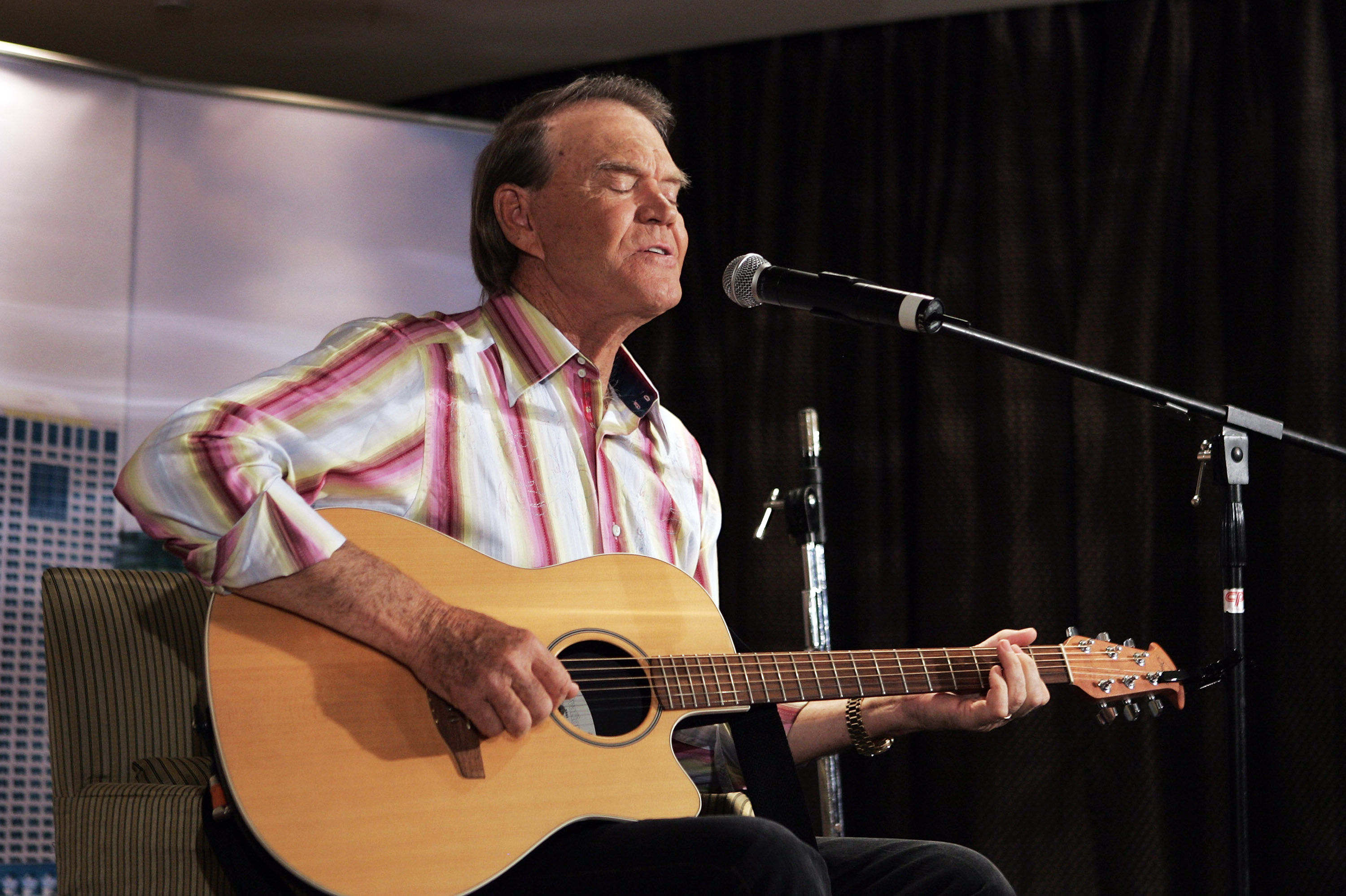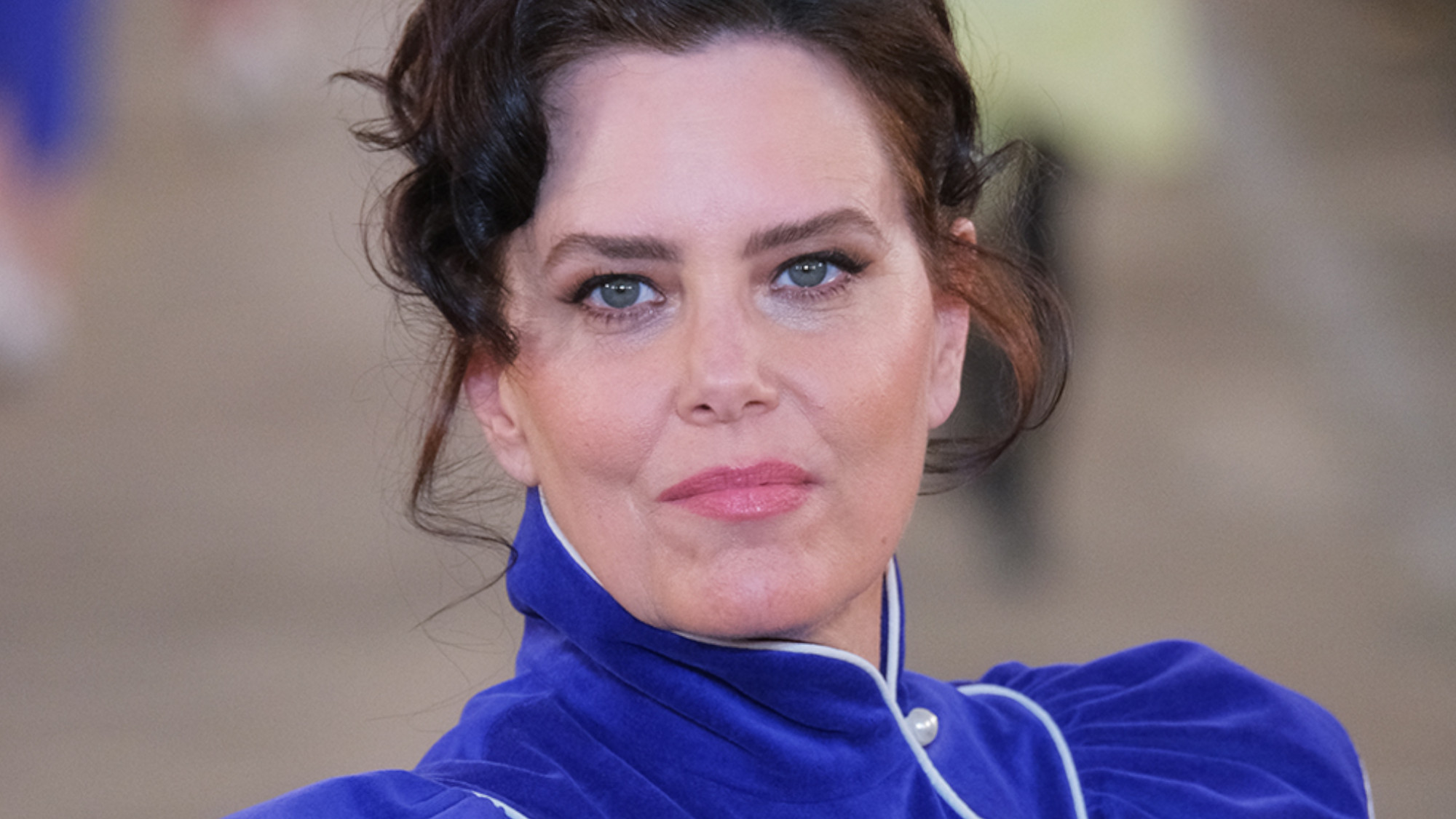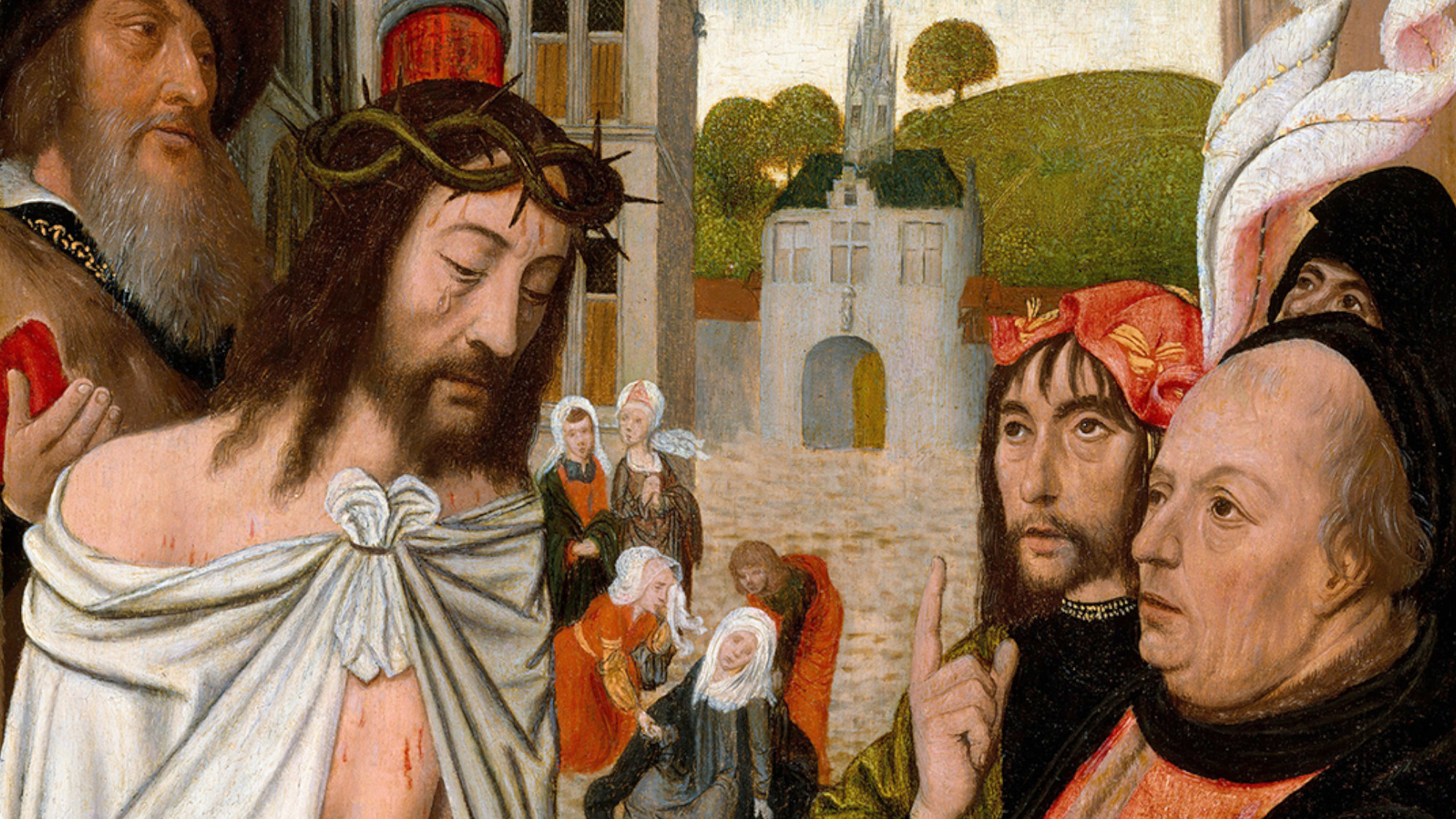Glen Campbell is the most underappreciated musician in America
Let us praise him


It's been nice to see that with the release of Adiós, his new — and almost certainly final — album, Glen Campbell is finally getting his dues from critics.
Campbell has always been a hard critical sell, especially among people steeped in the Whig Interpretation of Pop History who don't own copies of Southern Nights but think that, say, Brian Wilson was some kind of genius because he introduced animal noises into mediocre pop songs. (Clearly these are people who have never browsed the racks at their local Goodwill, where roughly 50 percent of the records are goofy but very innovative novelty albums doing the same thing. The only meaningful difference between Pet Sounds and Jungle Drums by Morton Gould and His Orchestra is that the latter has better cover art.)
Which is not to say that Wilson isn't a great talent. Campbell himself, who played guitar on Pet Sounds and whose best early single was the Wilson-penned "Guess I'm Dumb," would have been the last to disagree with that. But put beside the achievement of half a century of Glen's catalogue, Today! and Wild Honey and Surf's Up and — maybe — Love You! look pretty thin.
Subscribe to The Week
Escape your echo chamber. Get the facts behind the news, plus analysis from multiple perspectives.

Sign up for The Week's Free Newsletters
From our morning news briefing to a weekly Good News Newsletter, get the best of The Week delivered directly to your inbox.
From our morning news briefing to a weekly Good News Newsletter, get the best of The Week delivered directly to your inbox.
The man from Billstown, Arkansas, has had enough careers for five great musicians. Campbell was a brilliant session guitarist and since the early '60s has been pop's most versatile interpreter not named Barbra Streisand. He was country's best ballad man in his heyday and had an unfailing instinct for spotting songwriting talent. This is a man who introduced Donovan to American audiences and discovered Alan Jackson. He could slay in a duet with Johnny Cash, but he was also the crown prince of easy listening.
The best place to start for people who think of Campbell as "That guy who did 'Wichita Lineman'" is the brilliant two-disc collection The Capitol Years, whose compilers had the good sense to look past the chart toppers, brilliant as most of them were. "The Universal Soldier" is the best anti-war ballad ever sung by a guy whose politics basically consist of the sentiment that draft dodgers should be hanged. "Less of Me," from his album of duets with Bobby Gentry, will make Byrds fans and Merle devotees alike salivate. Sorry, Nilsson fans (of whom I am certainly one): "Marie" is easily the best cover of a Randy Newman song ever. Then there the ones people do tend to know: "Gentle on My Mind," "By the Time I Get to Phoenix," "Galveston," which belongs on any short list for best pop single of all time, and various cuts from Rhinestone Cowboy, the greatest country record released in the '70s and a fine rebuke to hipster cultists who imagine that outlaw posturing was the genre's be-all end-all.
If the album had been compiled a few years later, it might have been expanded to a third disc. Unlike virtually every single one of his contemporaries, Campbell managed to recover from a slump in the '80s and make a huge amount of relevant and interesting music in the last two decades. No compilation of his best work could be complete without his staggering take on Jackson Browne's "These Days," which makes Nico's version sound like tin-eared elevator music. I like to imagine Campbell driving around in his truck and hearing Green Day's "(Good Riddance) Time of Your Life," which I used to consider one of the most annoying songs by one of the most annoying bands of all time, on the radio and thinking, Hell, that's a great tune: He makes the world-weary nostalgia only implicit in the melody and lyrics come to life in a way that could never have been possible for someone with Billy Joe Armstrong's limited vocal abilities. "I'm Not Gonna Miss You" is my early pick for song of the decade.
But the most salient fact about Campbell and his career is that he was always very consciously making music for adults. If there is anything that could do with a revival in 2017, it's well-crafted, lushly produced records of men and women singing recognizable songs accompanied by traditional instruments. I don't know who Ed Sheeran is, but I get the sense that most of his recorded output is not exactly at the "Dreams of the Everyday Housewife" level of relevance for people who, whatever their real age, are not emotional teenagers. Campbell's songs are about loneliness, melancholy, spouses, children, and God, real things that people come to grips with when they're old enough to have been really hurt. He sings about love not as some kind of intoxicating Platonic ideal but as something hard and difficult that we could all use a little more of in a fallen world full of misery.
Adiós is a case in point. Who would have thought it was possible to do anything interesting with "Everybody's Talkin'" in 2017? The youthful ennui so familiar from Harry Nilsson's classic recording is entirely absent here, replaced by a fragile, haunting ballad about what it's like to lose your mind. According to his wife, Kim, Adiós was recorded as Campbell was descending into the final stages of Alzheimer's. As of this writing, he has no idea that the album even exists. Which is all the more reason to celebrate his extraordinary achievement.
Sign up for Today's Best Articles in your inbox
A free daily email with the biggest news stories of the day – and the best features from TheWeek.com
Matthew Walther is a national correspondent at The Week. His work has also appeared in First Things, The Spectator of London, The Catholic Herald, National Review, and other publications. He is currently writing a biography of the Rev. Montague Summers. He is also a Robert Novak Journalism Fellow.
-
 Ione Skye's 6 favorite books about love and loss
Ione Skye's 6 favorite books about love and lossFeature The actress recommends works by James Baldwin, Nora Ephron, and more
By The Week US
-
 Book review: 'Miracles and Wonder: The Historical Mystery of Jesus' and 'When the Going Was Good: An Editor's Adventures During the Last Golden Age of Magazines'
Book review: 'Miracles and Wonder: The Historical Mystery of Jesus' and 'When the Going Was Good: An Editor's Adventures During the Last Golden Age of Magazines'Feature The college dropout who ruled the magazine era and the mysteries surrounding Jesus Christ
By The Week US
-
 Not invincible: Tech burned by tariff war
Not invincible: Tech burned by tariff warFeature Tariffs on Asian countries are shaking up Silicon Valley, driving up prices and deepening global tensions
By The Week US